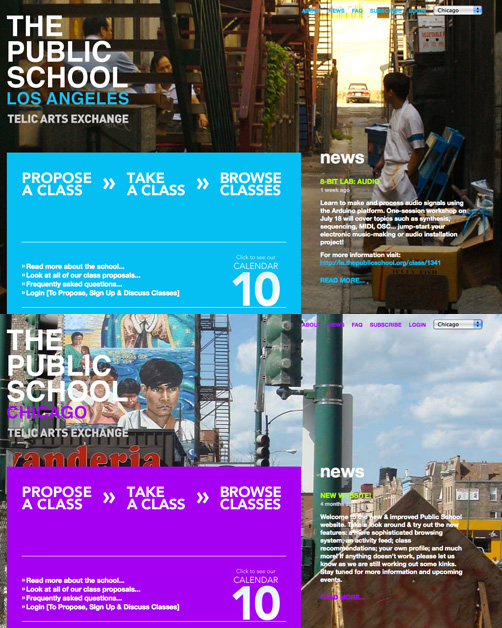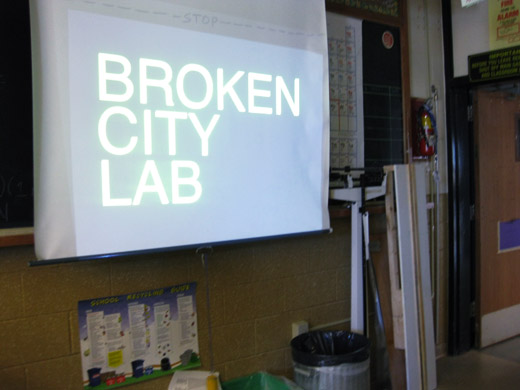
The Public School is an initiative by Los Angeles’ Telic Arts Exchange, and, so far as I can tell, the basic premise is this: people interested in either teaching or taking a short-term class on a given subject propose that class; other people interested in such a class express their interest on the School’s website, and proposals eliciting the greatest public interest are selected to be taught. Nominal fees are collected, an instructor and curriculum are settled upon, and then the class is held at a space provided by the School. Topics already selected range from gold leafing and piñata-making to discussion of Benjamin’s Arcades Project and conceptual choreography. And S&M. And composting.
So far, the School has also launched programs in Chicago and Philadelphia. Now, it’s difficult to imagine the exact same system working in precisely the same way in a city the size of Windsor (put simply, there likely aren’t enough interested parties for the same degree of “crowd-sourcing” to be practicable), but as an organizational model for knowledge- or skill-sharing, I think there’s a lot that could be taken from the School’s format.
I’ve written here before about the potential that comes of having a physical space out of which to work, and something like this is perhaps one of the more compelling possibilities. The “school” here is, in effect, an empty classroom: the curriculum and schedule emerges out of a collective desire to see a given thing happen. And then it happens.
People everywhere have knowledge and experience that, in large part, goes under-utilized. It’s not difficult to imagine finding a couple-dozen people willing to chip in ten bucks for a silk-screening workshop, but, at the same time, there’s potentially something to be gained by bringing together four or five dedicated turbo-nerds willing to spend a night each week talking about—I don’t know—European versus North American histories of site-specificity in artistic practice and how these come to bear in current understandings and implementations of “relational” creative activity (only one example, of course). For the particular terbo-nerd leading the seminar, that outlet and the even-slight reciprocity of interest could mean the difference between sticking around and giving up and moving to Kitchener (“the Ghent of Southern Ontario,” I hear they call it). Or something. I don’t mean people like me specifically, of course; I’m just saying.
I could also teach gold leafing. Or piñata-making, come to that. Just saying.



